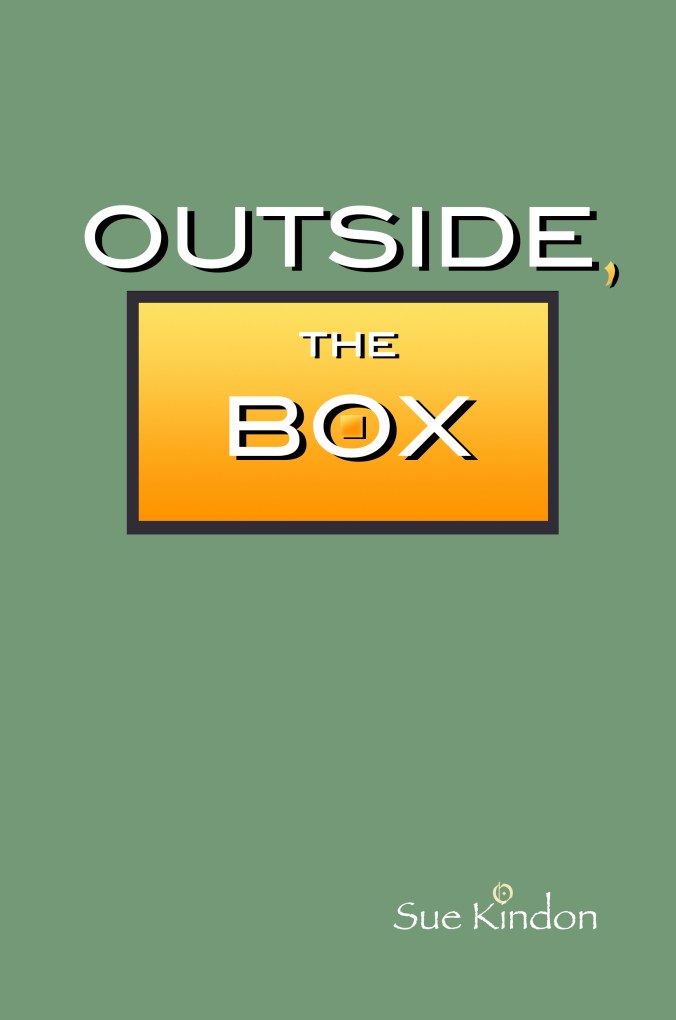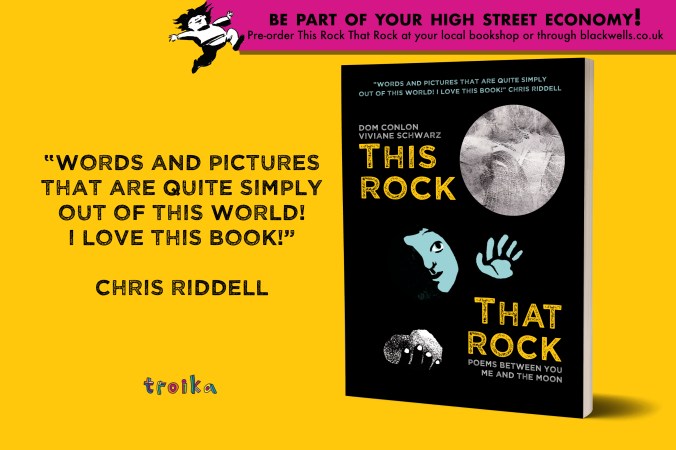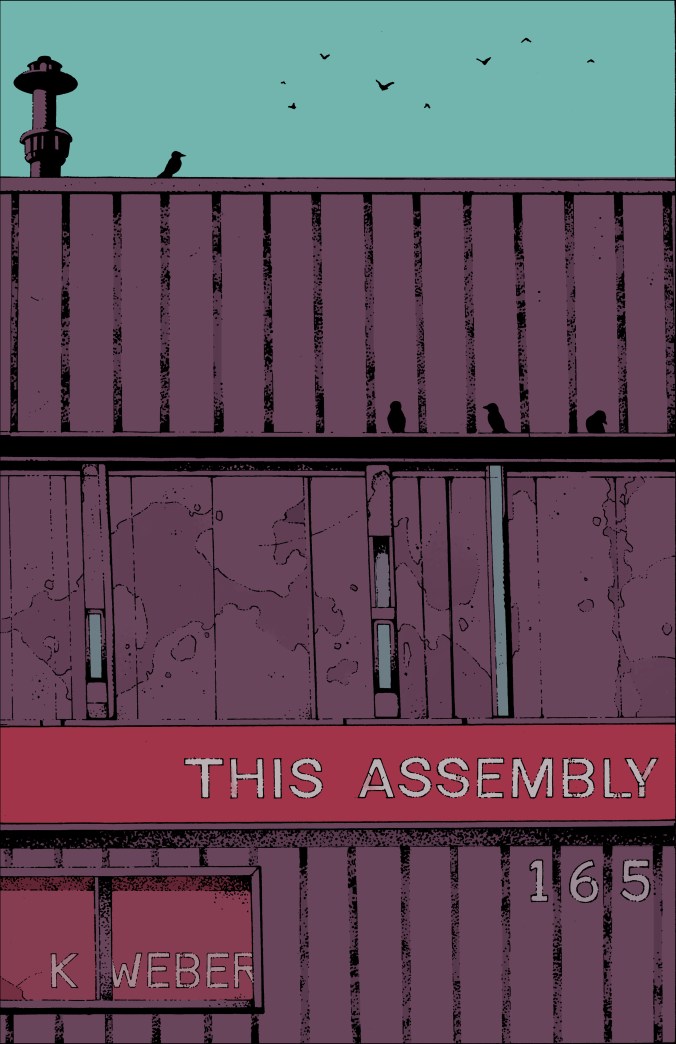Wombwell Rainbow Interviews
I am honoured and privileged that the following writers local, national and international have agreed to be interviewed by me. I gave the writers two options: an emailed list of questions or a more fluid interview via messenger.
The usual ground is covered about motivation, daily routines and work ethic, but some surprises too. Some of these poets you may know, others may be new to you. I hope you enjoy the experience as much as I do.

Sue Kindon
was born in Croydon when it was still in Surrey. She now lives and writes in the French Pyrenees, and helps run an online bookshop, Valier Illustrated Books, specialising in twentieth century and earlier limited editions. Her poems have recently appeared in Poetry Salzburg Review, Obsessed with Pipework, Picaroon, and Domestic Cherry. Her first pamphlet, She who pays the piper, was published by Three Drops Press in 2017, and her second, new from 4Word Press, is entitled Outside, the Box.
The Interview
1. When and why did you start writing poetry?
I’ve played with words and images for as long as I can remember. I have the notebooks from my teenage years, so I must have been writing things down by then, but I can’t place a particular trigger. Perhaps in response to discovering some great poems at school? We had a teacher who didn’t stick to the syllabus.
2. Who introduced you to poetry?
It would be that same teacher, Barbara Davies.
3. How aware are and were you of the dominating presence of older poets traditional and contemporary?
Do you mean, was I aware of the wealth of poetry that is our heritage? In which case, yes, because that was what I discovered at school. I didn’t go to any readings until I arrived at university, in fact poetry readings barely existed. All that has changed dramatically, with the growth of poetry and literary festivals as well as the Internet, which has put us all in touch with each other and means there is instant access to the writings of contemporary poets, great and small.
4. What is your daily writing routine?
I imagine it to be that I am woken by the alarm every morning at 6.30. I sit at my desk (which belonged to my mum) and set pen to paper for 2 hours before breakfast. I really did do this every day for some years, but now it probably happens 2 or 3 times a week if I’m lucky. These days, I’m more likely to compose poems in my head, as and when. If I can still remember them 24 hours later, they’re probably worth writing down. If I’ve managed to get up early and don’t feel like writing poetry, I read it.
5. What motivates you to write?
I take motivation to mean why I write. It’s a hunger, although I don’t always have the appetite for it. It’s an urge to put into words a fraction of the amazing sensations that bombard me, and to offer them unconditionally. It’s a fascination with pushing the language to its limits and playing with it to make new connections. It’s the satisfaction of being part of the word soup that is poetry and seeking that dash of magic that means the next poem could just be the best one ever.
6. What amazing sensations.. bombard you, and why?
Just everything about opening your senses to being alive. If you can quieten yourself enough, there is a wealth of stimuli out there.
6.1. So it isn’t contemporary political or social issues rather what stimulates your own senses?
They are the context, and because I’m not a total hermit, they influence my writing. I wouldn’t set out to write about a particular issue, but I might be jolted into doing so by a phrase used by a politician, for example, or by witnessing an incident.
7. How do the writers you read when you were young influence your work today?
I’m not aware of how those writers influence my work, although I’m sure they do. I hope my style is my own. Those I admired when I was starting out include Shakespeare, Blake, Keats, Yeats, Louis MacNeice, T S Eliot, Sylvia Plath, and Ted Hughes. I dismissed the work of Philip Larkin at the time, but I’ve now come to appreciate his direct diction and accessibility. I was delighted to discover the imagery and voluptuous language of Baudelaire, and the risks taken by Rimbaud in both form and subject matter.
It’s a tall order to put all that in a nutshell, but here goes: –
Shakespeare – mastery of the sonnet form, richness of language, imagery, conceits.
O, learn to read what silent love hath writ:
To hear with eyes belongs to love’s fine wit.
Blake – Songs of Innocence and Experience – the power of contrast, simplicity, song-like quality, use of symbols, mysticism.
To see a World in a Grain of Sand…
Keats – rich descriptions, the sensual imagery of the Odes.
…With beaded bubbles winking at the brim.
Yeats – awareness of fragile beauty, lyricism, Celtic twilight.
Come away, O human child!
To the waters and the wild
With a faery, hand in hand,
For the world’s more full of weeping than you can understand.
Louis MacNeice – for Prayer before Birth, probably the poem that grabbed me most, with its bold voice and urgent rhythm. I’ve just read it again, and I still love it.
Let not the bloodsucking bat or the rat or the stoat or the
club-footed ghoul come near me.
TS Eliot – innovation of form, echoes of other works,
At the still point of the turning world.
Sylvia Plath – hooray, a woman. Plain speaking, bold imagery and subject matter.
Dying
Is an art, like everything else.
I do it exceptionally well.
Ted Hughes – observation of nature, constructing a feral world with imagery (especially the sequence that is Crow) and always with an awareness of the music of the poem.
With draped manes and tilted hind-hooves,
Making no sound.
I passed: not one snorted or jerked its head.
Grey silent fragments
Of a grey still world.
All these poets share an honesty of approach, and an, attention to how the poem sounds that I greatly admire (which was probably the answer you intended, Paul, rather than a survey of my cherry-pickings of English/Irish literature, but I’ve rather enjoyed doing it).
8. Whom of today’s writers do you admire the most and why?
Jacob Polley is my poetry hero: musical, using unexpected imagery to great effect, creating a dreamlike, sometimes nightmare-like world that hovers between nature and human encroachment, with all the emotions that tension plays out. Alice Oswald, for a fresh approach and a tremendous sense of rhythm. Michal Symmons Roberts for his quiet lyricism and gentle spirituality. Antony R Owen for taking on political subjects, especially war and oppression, so well that I don’t have to, because he’s done it for me (and how). Paul Muldoon for his weird take on things and for his delight in playing with the language. Billy Collins for his humour.
9. What would you say to someone who asked you “How do you become a writer?”
You give yourself permission to write. You write. You think How would I write this? You experiment. You have to be prepared to ditch the rubbish that will result, and to face the criticism when you put your work out there. And you read, to see how the writing is done and to feed your imagination.
10. Tell me about the writing projects you have on at the moment.
I’m resting at the moment, after recently completing a pamphlet. Having said that, I’ve already started translating those poems into French, as I would like to bring out a bilingual edition.
11. What inspired you to write Outside, the Box?
The comma in the title Outside, the Box is all-important, because the starting point for the poems is ostensibly the box-moth plague that ravaged this part of France last year, destroying both native and garden box bushes.
12. How important to you is the use of space in your poetry on the page?
Very. The white space equates to silence. I am interested in how this looks on the page and how it sounds (or doesn’t) when the words are read aloud. In my recent pamphlet I would say I’m always aware of this, and several poems have shaped themselves in unconventional ways as a result.
13. Among the themes in your book, I find one the humorous militaristic description of nature such as “hornet police”, and with sometimes off hand sometimes full on descriptions of Christian church-going.
I’m interested that you interpreted hornet police in that way, as I rather thought they were police helicopters, but either way, they are a threat.
I’m not surprised you spotted a religious theme, as I was brought up in a very Christian household. You are probably referring primarily to the poem Excommunicado ,which I wrote when the words of The Lord’s Prayer were modernised. I acknowledge that there is a spiritual aspect to my writing, but it isn’t exclusively Christian. I’m more of a pantheist.
14. Bathing in water in these poems seems to provide you with peace and solace.
There is definitely a search for peace and solace going on, and some watery images. The poem Learning to Swim is probably about trust. I often dream about water.
15. How important is it to have humour in your poetry? I am thinking of Outside The House Of Running Water.
I never start writing with the intention of being funny, but quite often things turn wry. Also, I am overblessed with a sense of the absurd. In the poem you mention, it is the voice of the speaker in an absurd situation that raises a dry smile, I think.
16. Your wry humour comes over in the poems where you contemplate the death of humankind. I am thinking of Eve and The Ultimate Green Thought.
The Ultimate Green Thought is jokey despite its serious subject matter. I’m not so sure about Eve – I feel that she makes a rather more serious statement about the catastrophic state of things, but that some hope is offered by the ending. I guess that might raise a smile.








